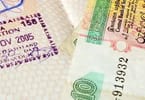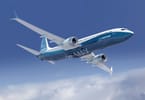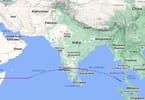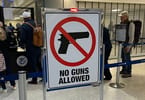The financial impact of the Christchurch earthquake was more severe than had been expected.
The impact from the devastation in Japan and the Christchurch earthquake has hit Air New Zealand, which dropped more than 10 percent yesterday.
After the Christchurch earthquake, the NZX-listed airline said it expected to be profitable in the second half of the financial year, which ends in June.
But yesterday the company said the financial impact of the earthquake was more severe than had been expected at that time.
“The recent tragic events in Japan will also impact revenue in that important market,” the airline said.
“Based on current fuel prices and demand trends, the company does not expect to be profitable in the second half of the year, and full-year normalized earnings are expected to fall below US$100 million.”
Shares in Air New Zealand, which is 74.7 percent owned by the government, closed down 13c yesterday at US$1.06 – a drop of 10.92 percent.
“Internationally, Japan was the main market showing a significant number of cancellations [since the earthquake in Christchurch] even before the events of the past few days.”
Visitor numbers from the Japanese market have fallen in recent years, although during the year that ended in January, they increased 11.3 percent to 88,605, making it the fifth biggest market by volume.
Japan was New Zealand’s fourth most valuable visitor market with US$321 million spent last year.
In the days after the Christchurch quake, the airline provided reduced domestic and international airfares in and out of Christchurch, aircraft upgrades to provide extra seat capacity, moved emergency supplies for free, and displaced paying cargo.
“Since then we have continued to offer US$50 standby fares and have capped regular fares into and out of Christchurch,” it said.
The total cost of the support was about US$10 million.
Goldman Sachs, head of research at Marcus Curley, said the airline’s share price had dropped back from more than US$1.50 during the past few months.
Yesterday’s fall in share price reflected surprise at news the company expected to lose money in the second half and general market weakness with increased nervousness around Japan.
“If you look at the Asian stock market, especially the Japanese one, you’ll see that prices have been in a freefall,” Curley said.
Air New Zealand was probably anticipating a fairly material drop in tourism, especially out of Japan for the remainder of this year, Curley said.
“What they’re really telling us is those issues with regard to fuel and tourism demand look like they’re going to be with us for at least the remainder of this financial year and hence profitability will be lower.”
The 9/11 terrorist attack in the United States showed that shocks to confidence resulted in an immediate change in activity, although a year was a long time, and the next peak season started in December, Curley said.
“I think in terms of tourism outside of Japan, the expectation would be that things have rebuilt.
“However, the prospects for Japanese tourism and the wider implications of that earthquake are still obviously to come through.”
Curley expected fuel to account for 24 percent of costs this year at the airline.
“It takes time for fuel surcharges to filter through to higher passenger fares,” he said. And it was not just the unrest in the Middle East causing concerns about oil.
“The Japanese earthquake potentially creates fairly large additional requirement for diesel fuel in a country which already is a major importer of fuel.”
WHAT TO TAKE AWAY FROM THIS ARTICLE:
- The 9/11 terrorist attack in the United States showed that shocks to confidence resulted in an immediate change in activity, although a year was a long time, and the next peak season started in December, Curley said.
- After the Christchurch earthquake, the NZX-listed airline said it expected to be profitable in the second half of the financial year, which ends in June.
- “Based on current fuel prices and demand trends, the company does not expect to be profitable in the second half of the year, and full-year normalized earnings are expected to fall below US$100 million.






















